Evidence and Gap Maps Effectiveness: Fourth Edition
Outline of the study
This research from 2022 updates the global evidence on what interventions work to help people experiencing or at risk of homelessness. The study brings together and categorises all available research on homelessness interventions from around the world, utilising two evidence and gap maps (EGMs). This process enables assessment of how much evidence exists and its reliability. It also highlights which approaches have been thoroughly tested and where more study is urgently needed.
Findings in brief
- This edition includes 562 studies, up from 221 studies in the EGM in 2018 - a 154% increase in four years. There has been a rapid growth in homelessness research, with the number of studies published between 2015 - 2020 almost triple that of 2010 - 2014
- There is a geographic concentration of evidence: 89% of studies (504) come from North America, predominantly the USA. Only 56 studies (10% of total) are from the UK. Just 31studies are from East Asia and Pacific region, and 87 from Europe and Central Asia.
- Services and outreach interventions continue to have the most studies (256), followed by health and social care interventions (224 studies) and accommodation interventions (193 studies). There were only 4 studies on legislation, 3 on communication, and 3 on financing and little on homelessness prevention, education and employment
- Nearly half of studies (49%) are randomised controlled trials (RCTs). However, 299 studies (61% of total) were assessed as having low confidence in their findings. This mainly relates to poor reporting of statistical power and high participant dropout rates
- UK-specific findings indicate an increase in the annual number of studies published between 2016 - 2020, from 2 to 9. However, only 5 RCTs were published during this period, only a third of impact evaluations were assessed as medium/high confidence and no studies were published on legislation or communication interventions
- Overall, very few studies measure cost-effectiveness. There is limited evidence on hostels (only 2 studies), families with children, veterans, elderly people, women and girls, or young people under 18.
Recommendations in brief:
- Conduct more local studies, to examine contextual differences which may affect intervention effectiveness
- Prioritise cost-effectiveness studies to help policymakers allocate resources efficiently. Focus on homelessness prevention studies, as these are potentially more cost-effective than crisis responses
- Prioritise RCTs in UK settings to build a high-quality evidence base
- Seek to focus future research on: intervention types where there are evidence gaps, including: legislation, communication, financing, prevention, and employment; homeless population sub-groups, such as families with children and accommodation types other than Housing First
- Research social impact bonds and other financing mechanisms like social impact bonds and direct financial support from the public
- Improve study design and reporting standards to increase confidence in findings
- Reduce participant dropout through developing interventions specifically designed for homeless population sub-groups, better engagement strategies, and follow-up procedures
- Create user-friendly evidence tools to make research findings more accessible to practitioners and policymakers
- Establish annual updates to EGMs, to track progress and emerging findings
- Develop capacity for carrying out systematic reviews, to synthesise existing evidence in understudied areas.



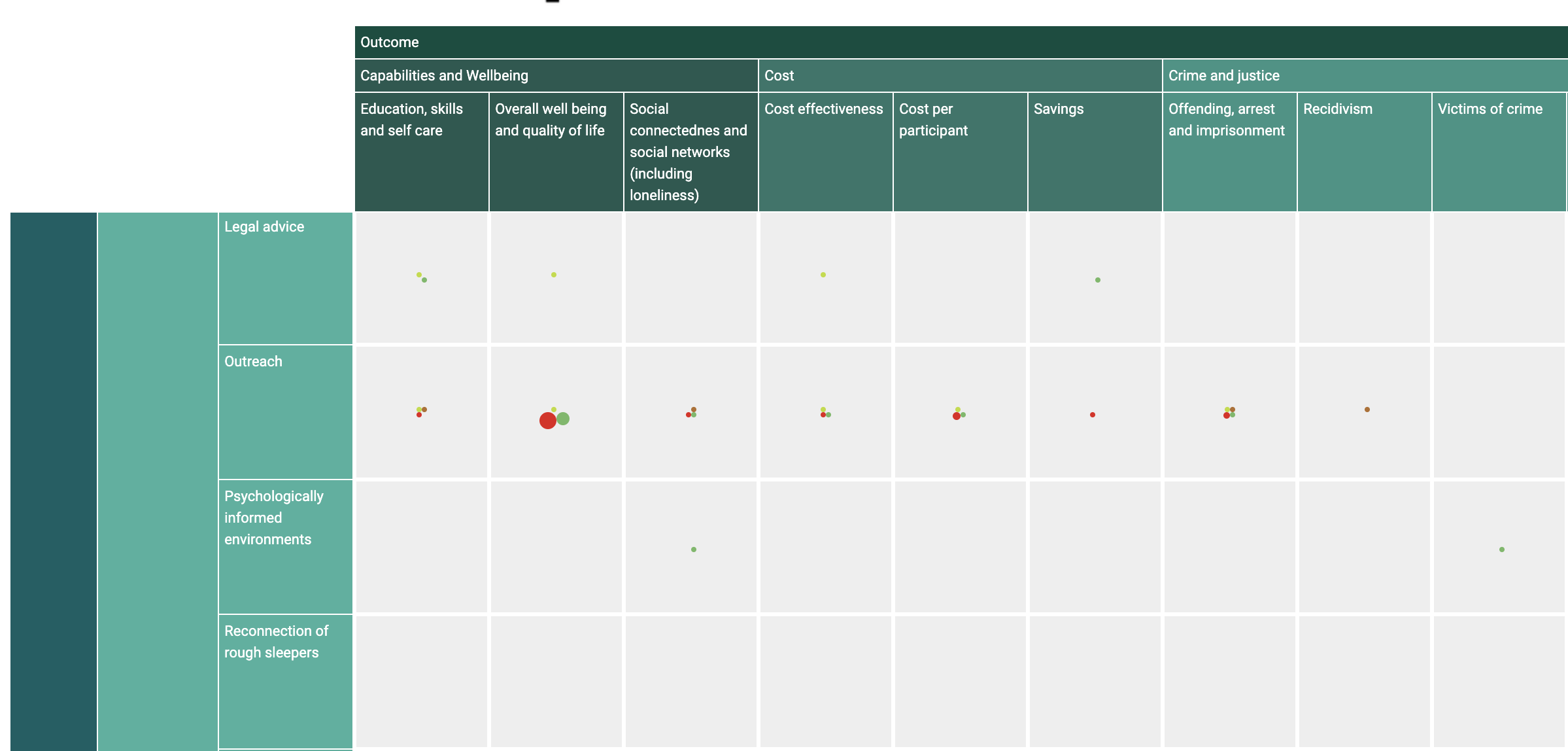
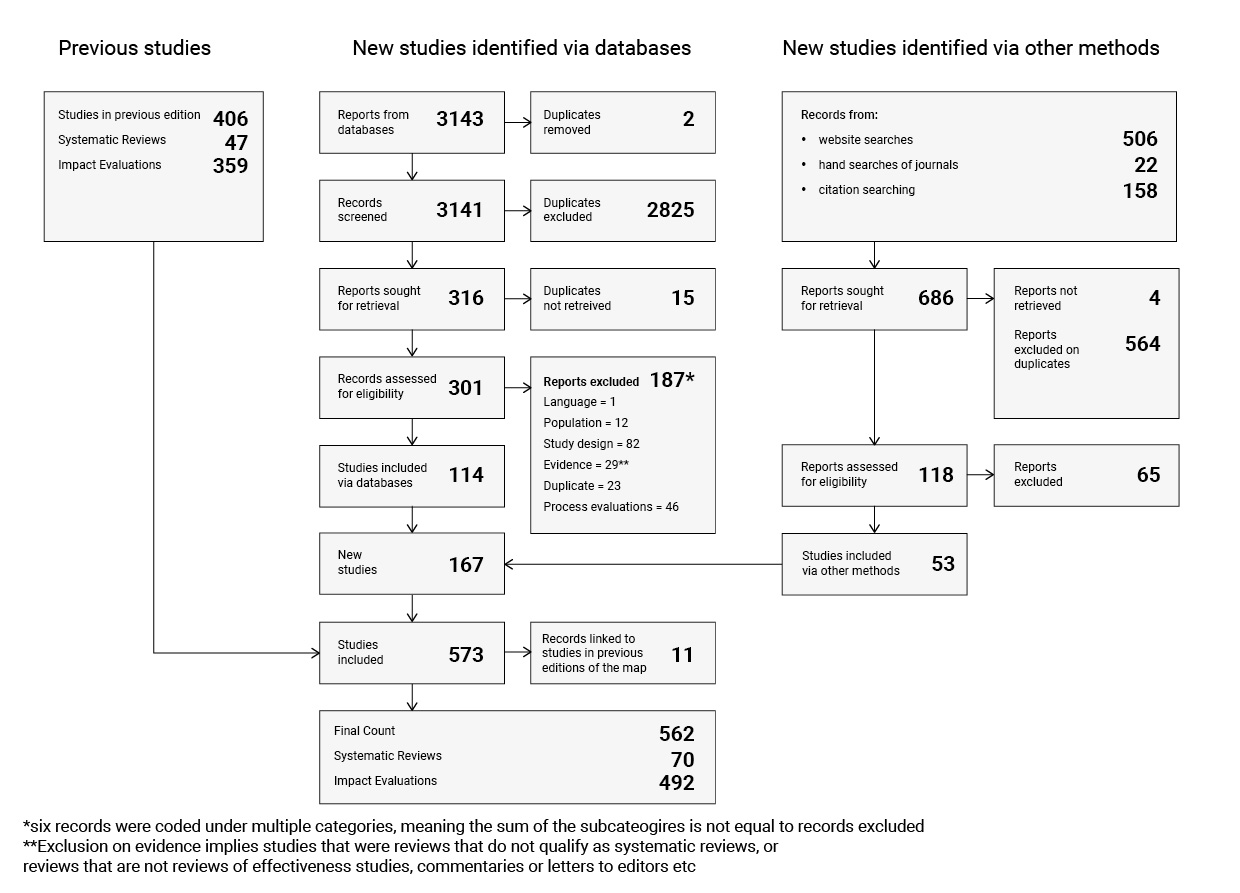
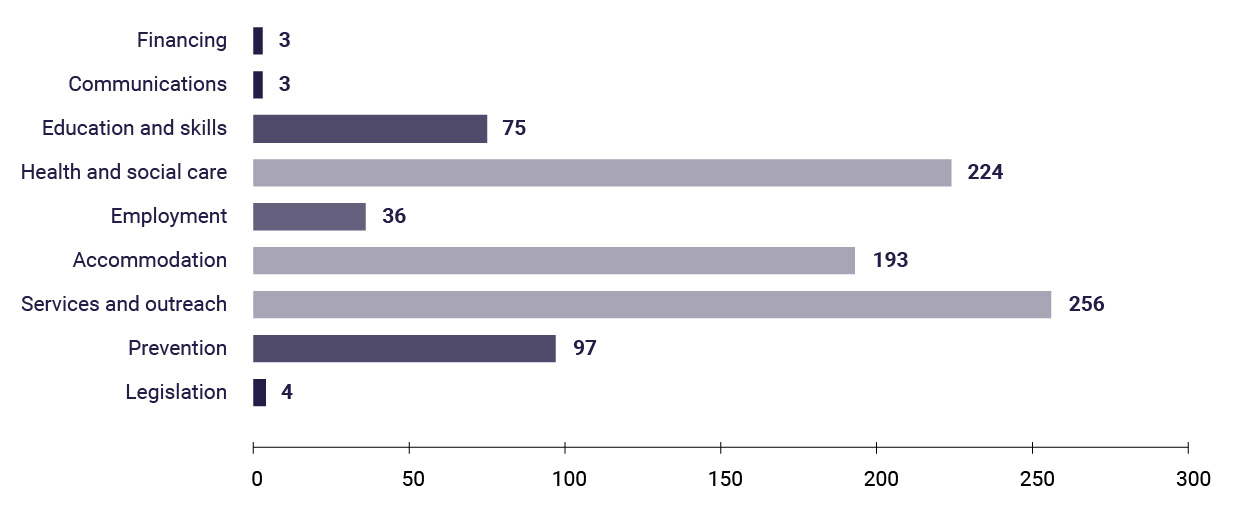
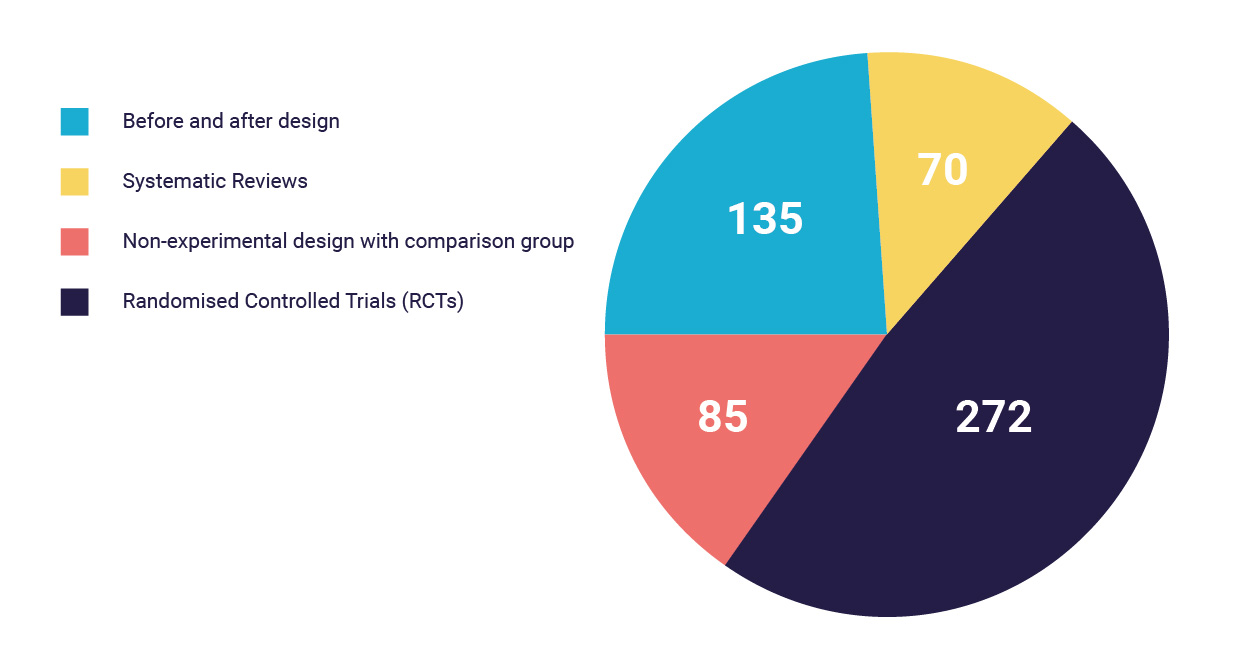

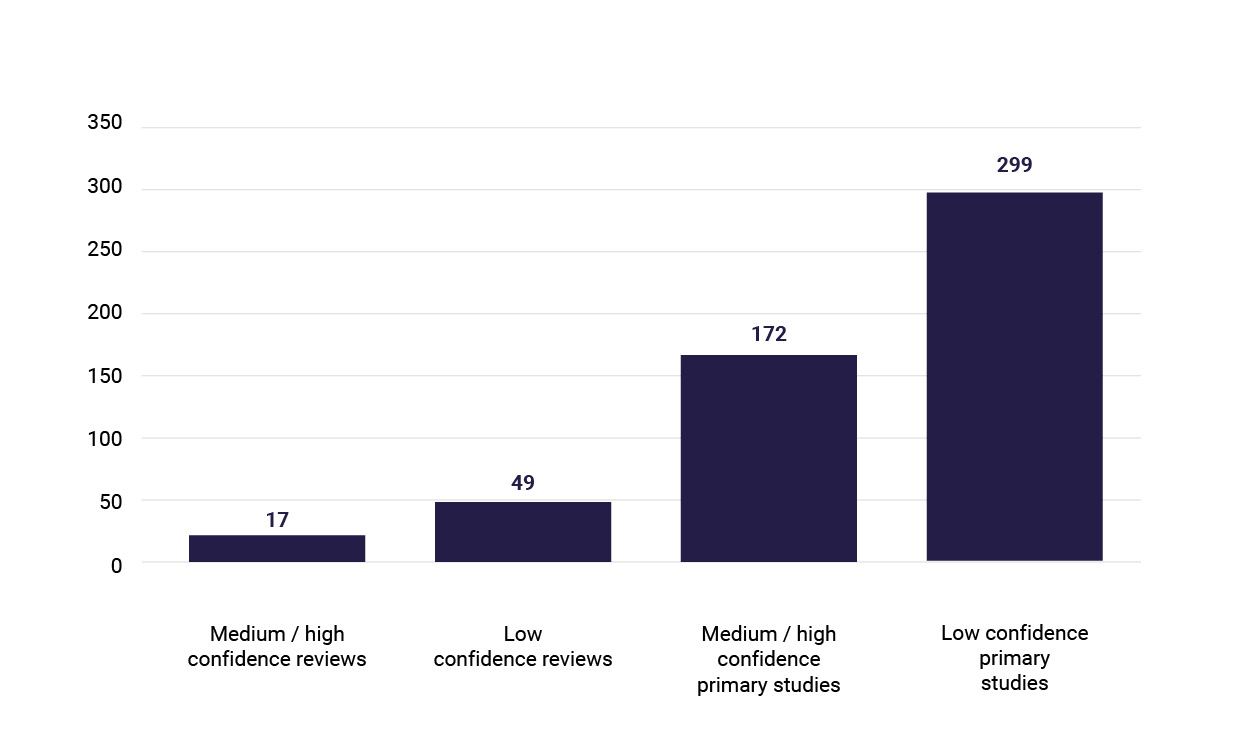
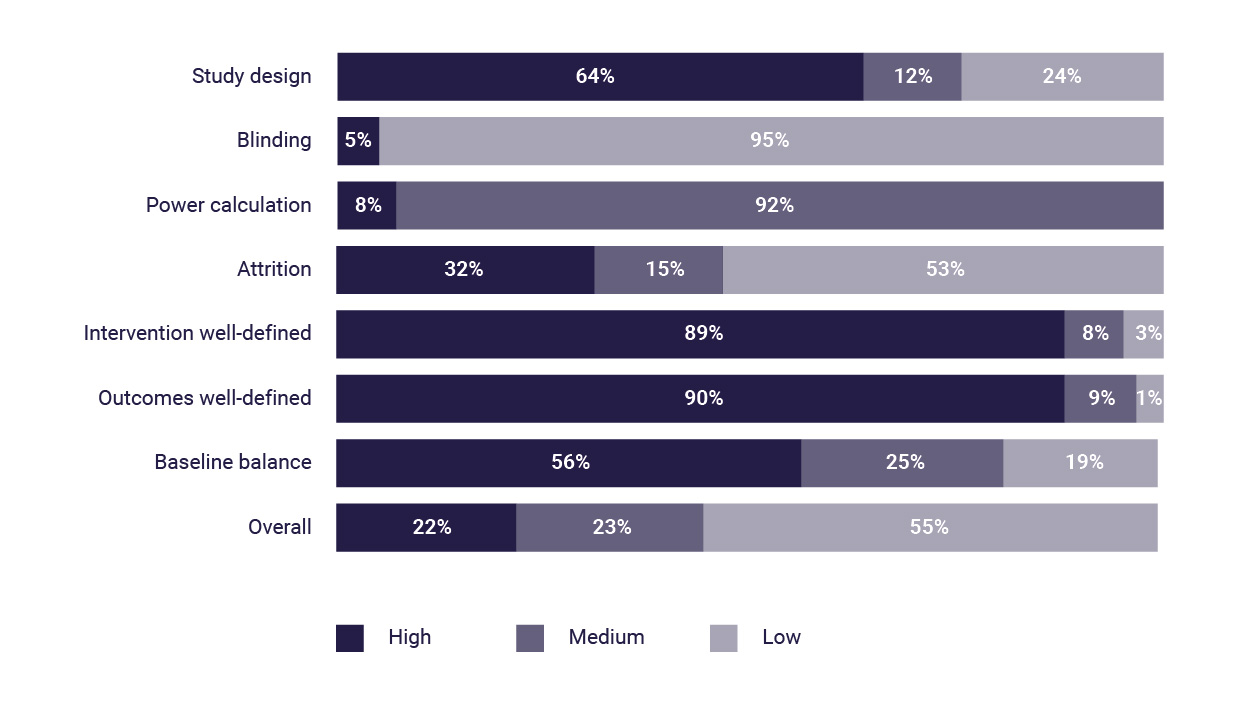


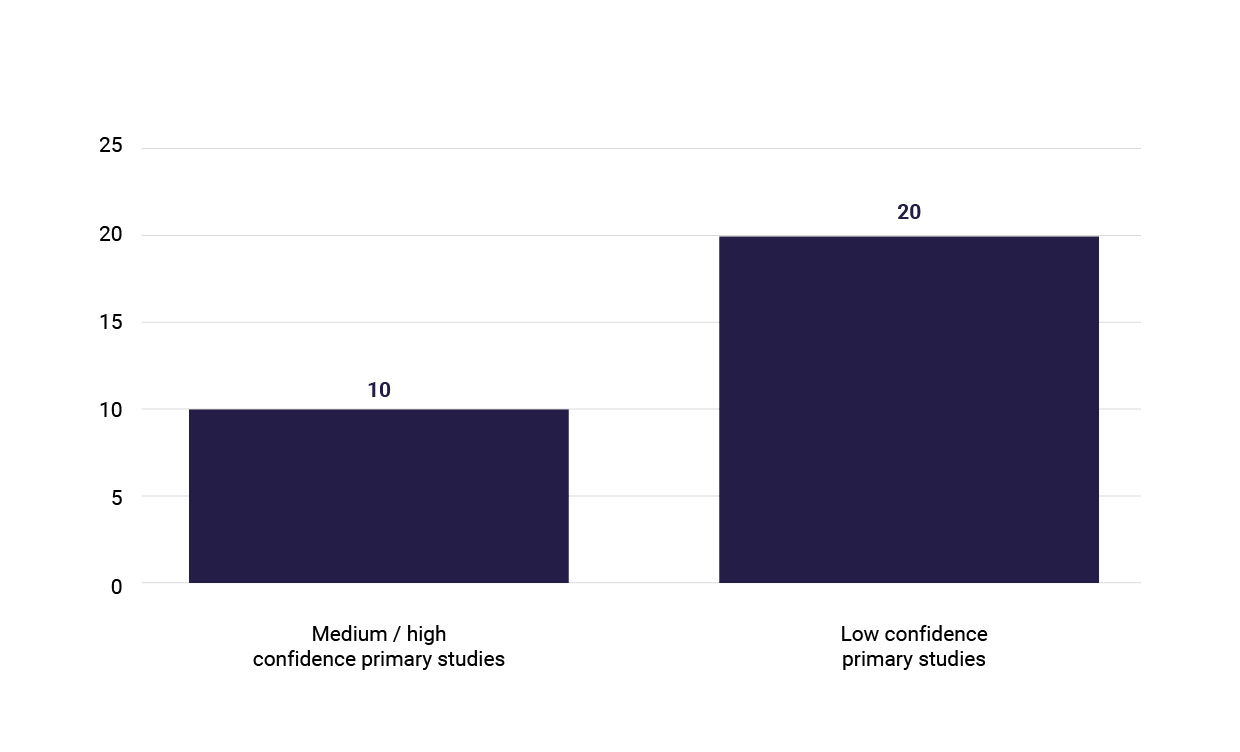
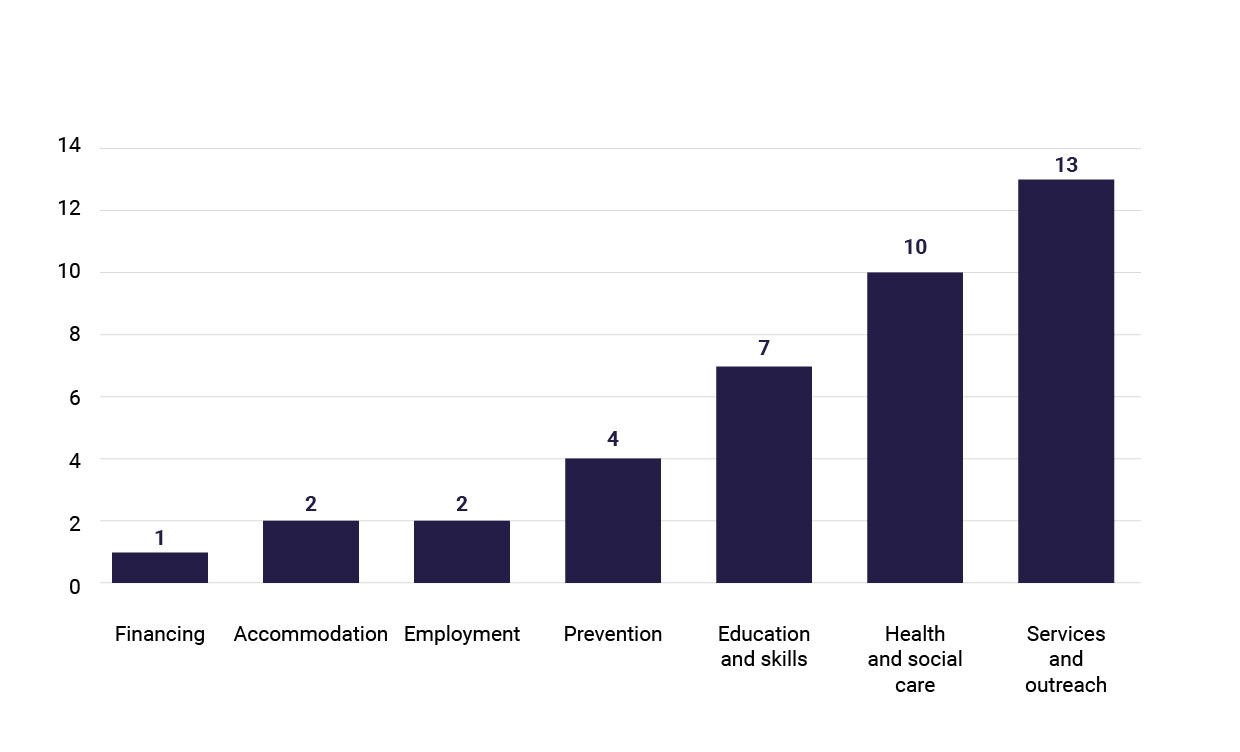
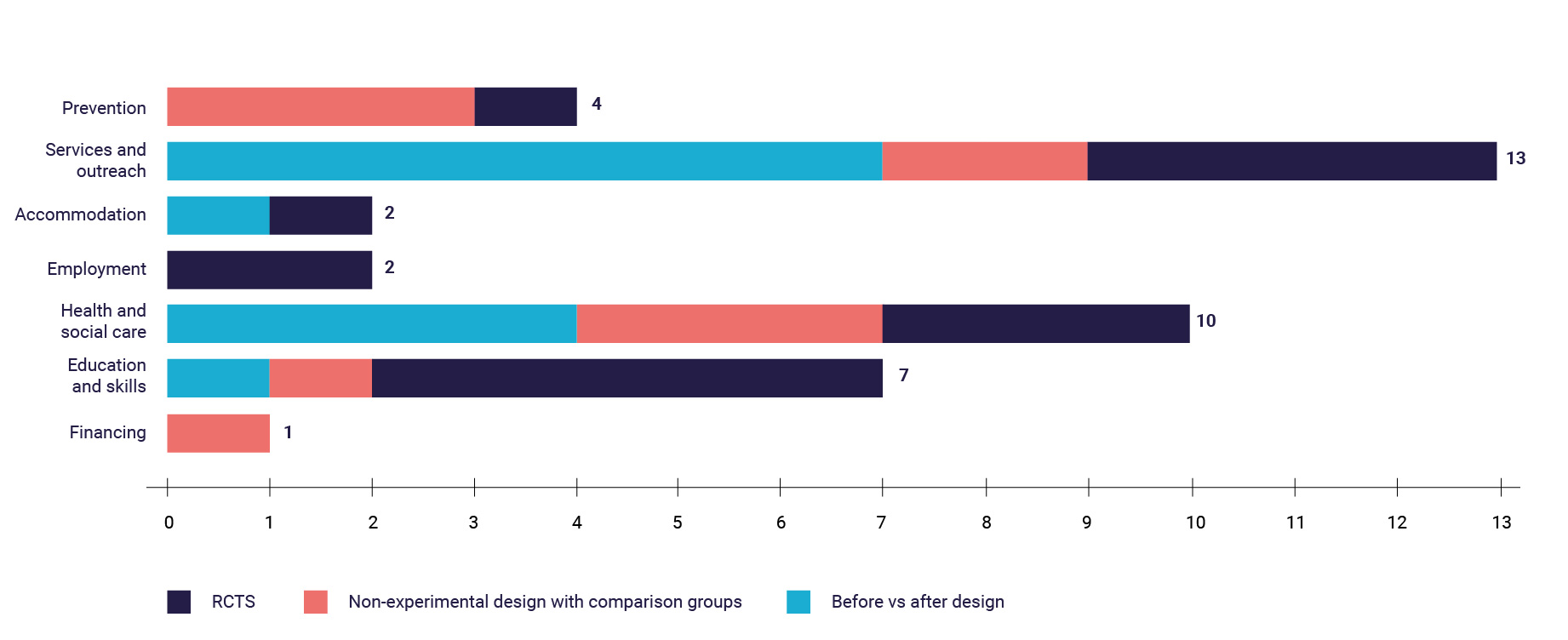

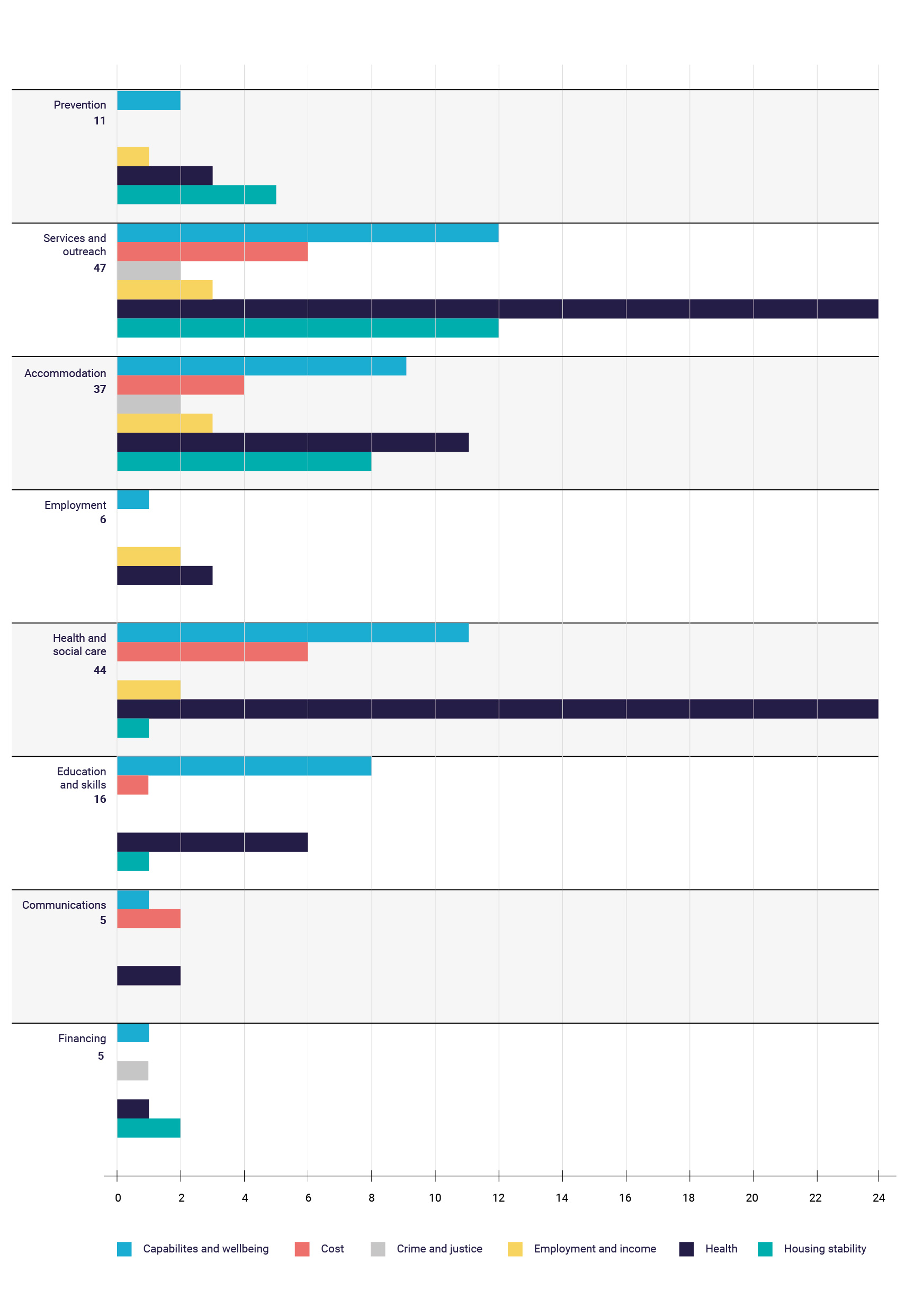


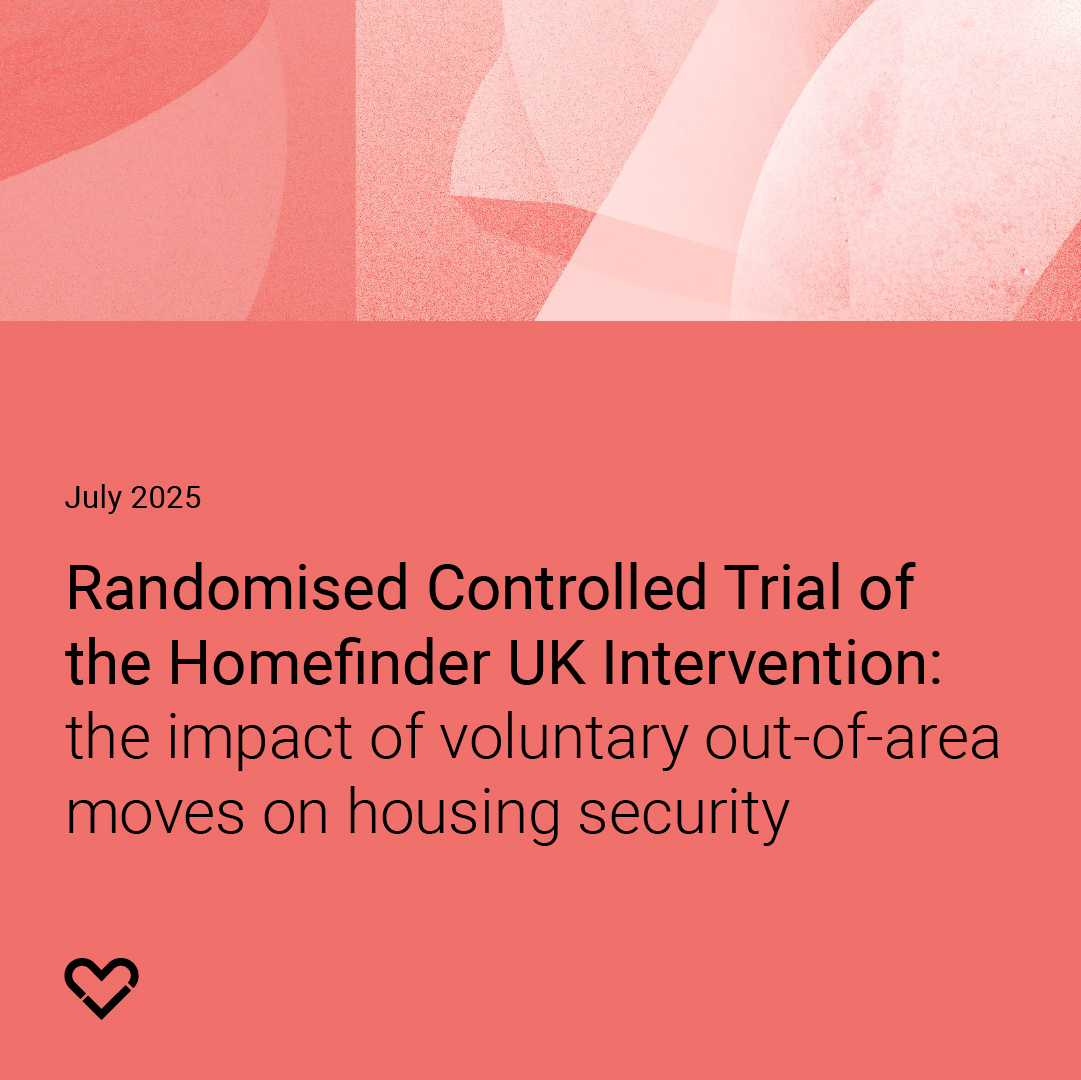
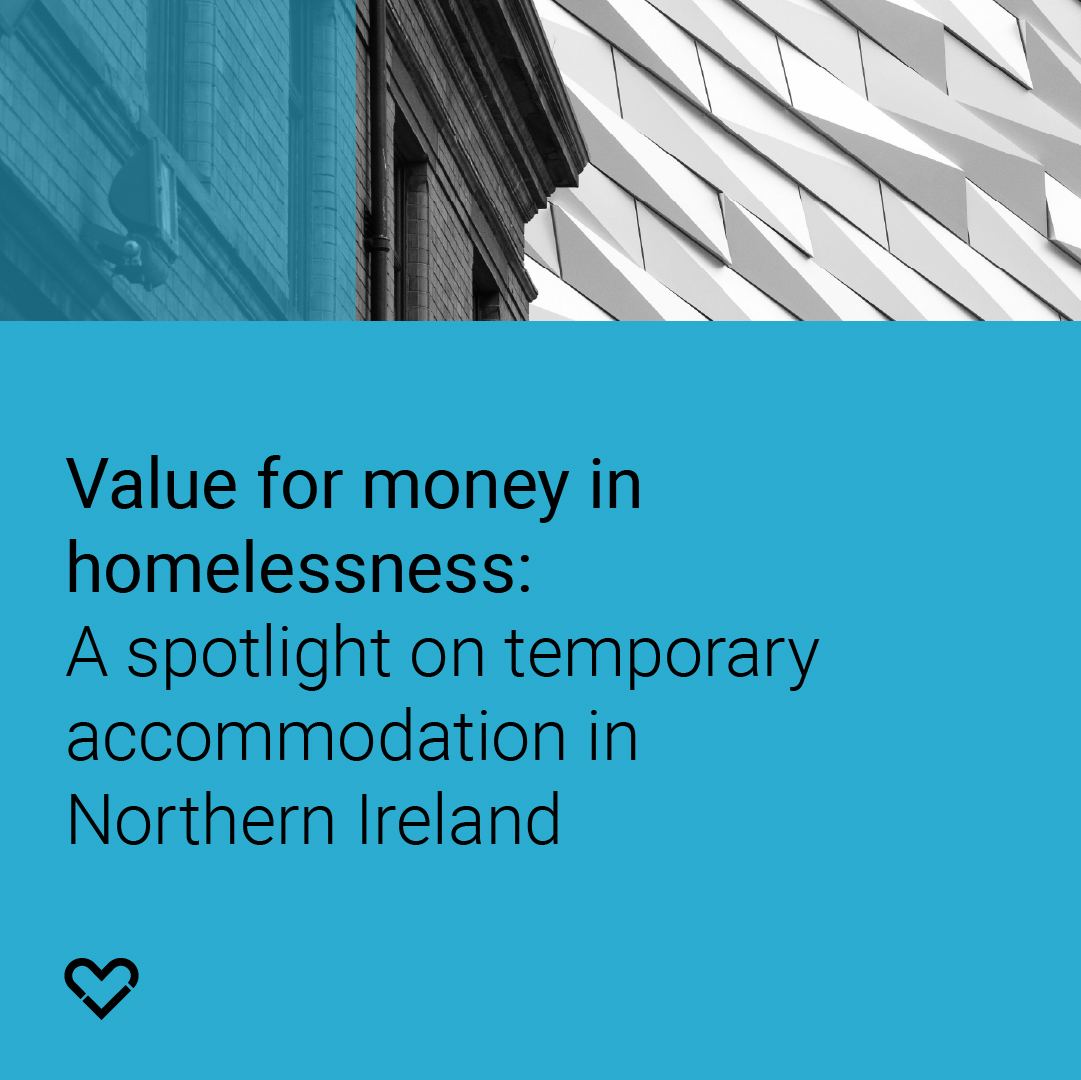
.jpg)

